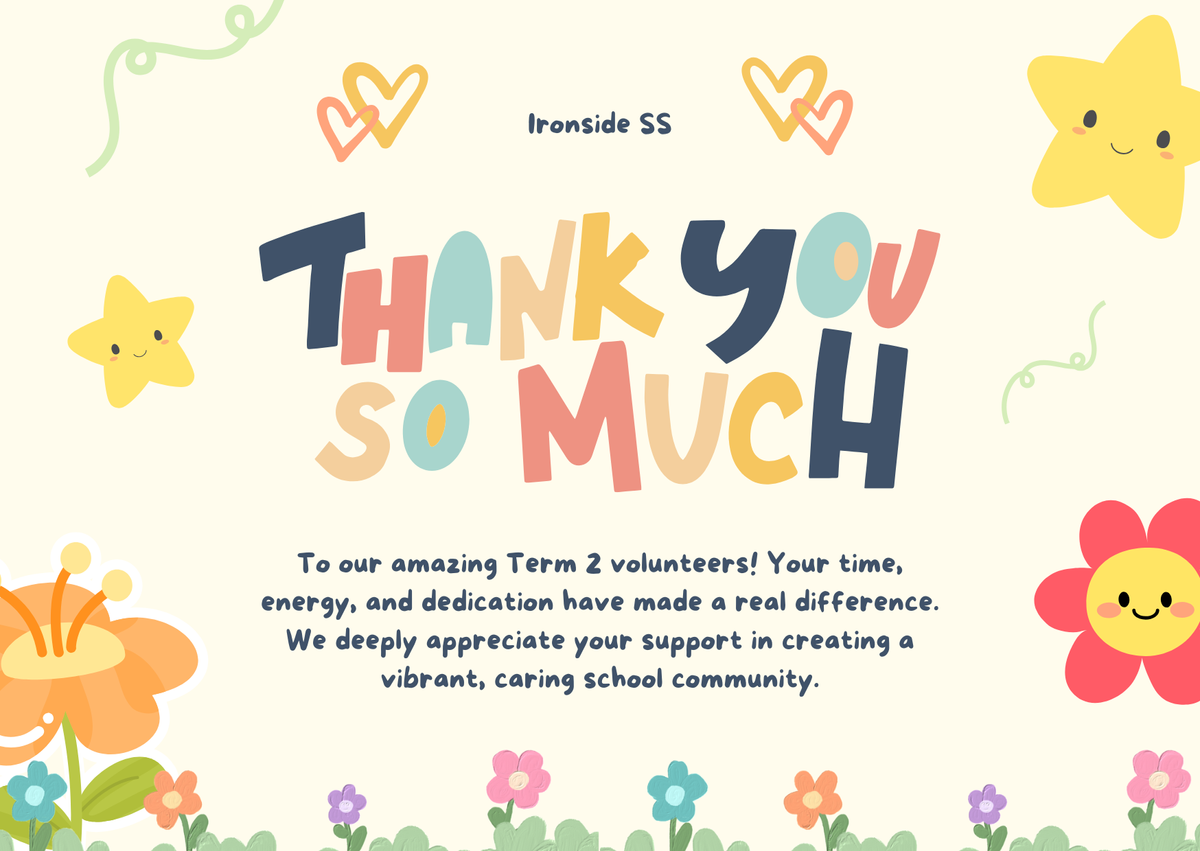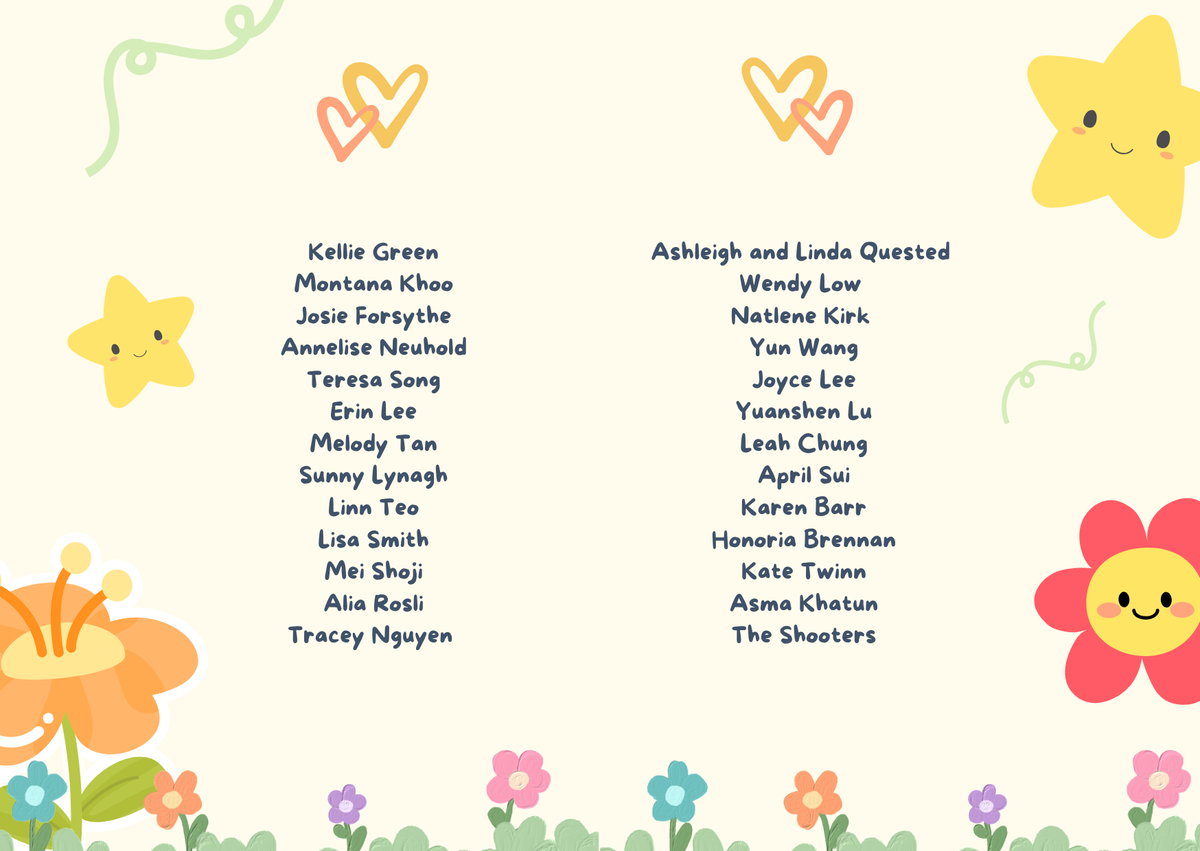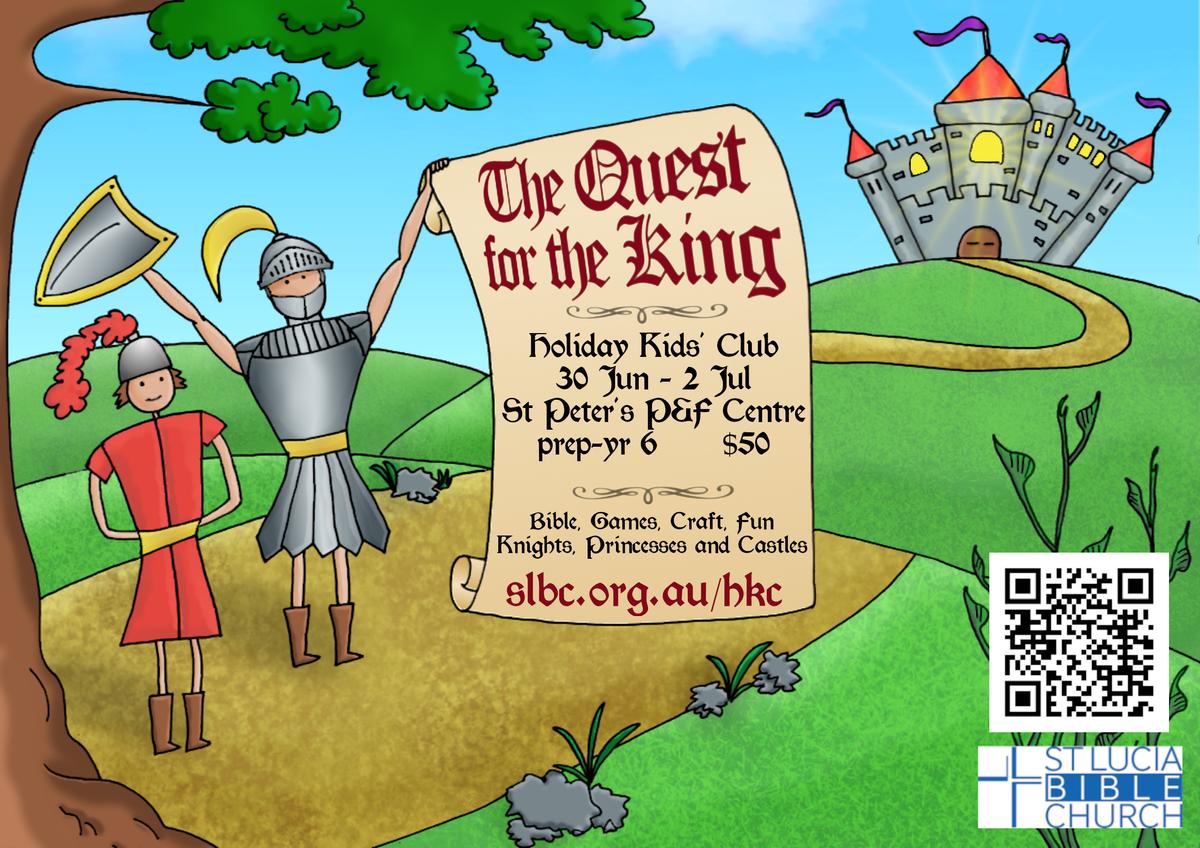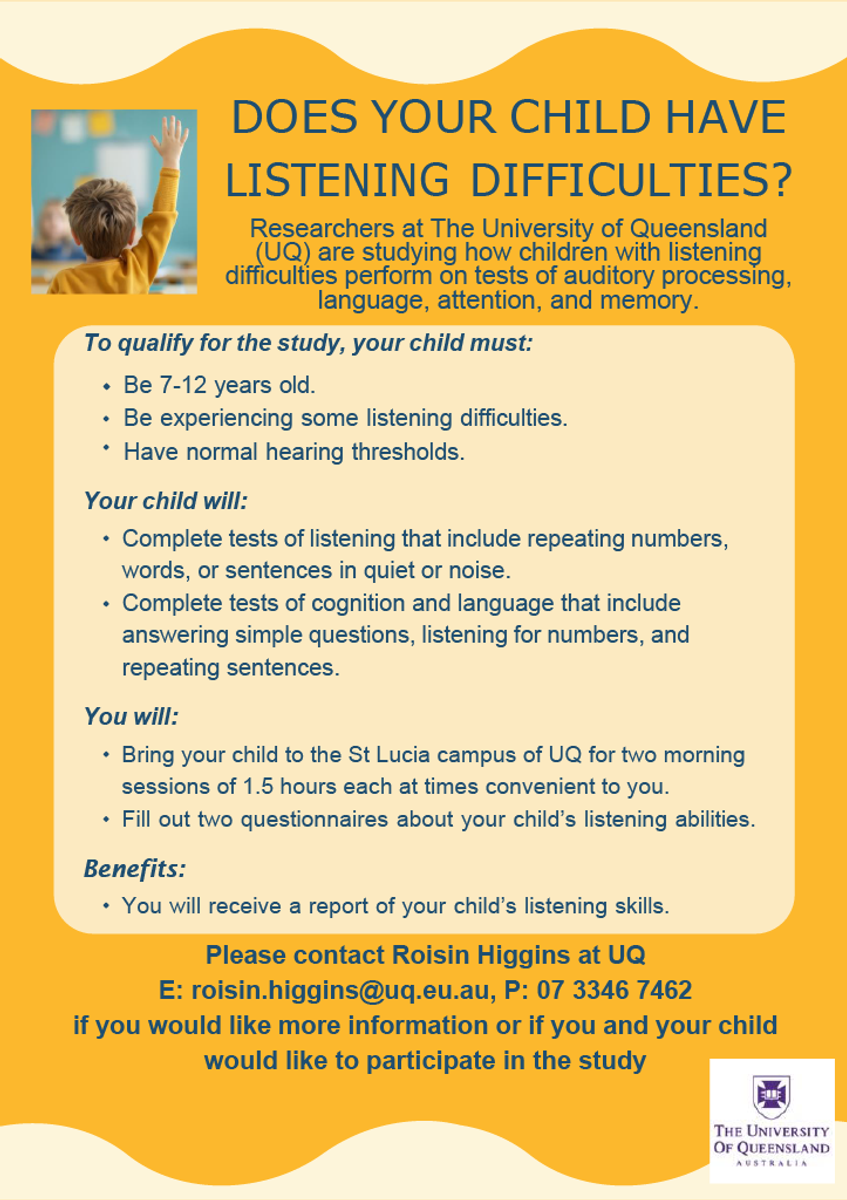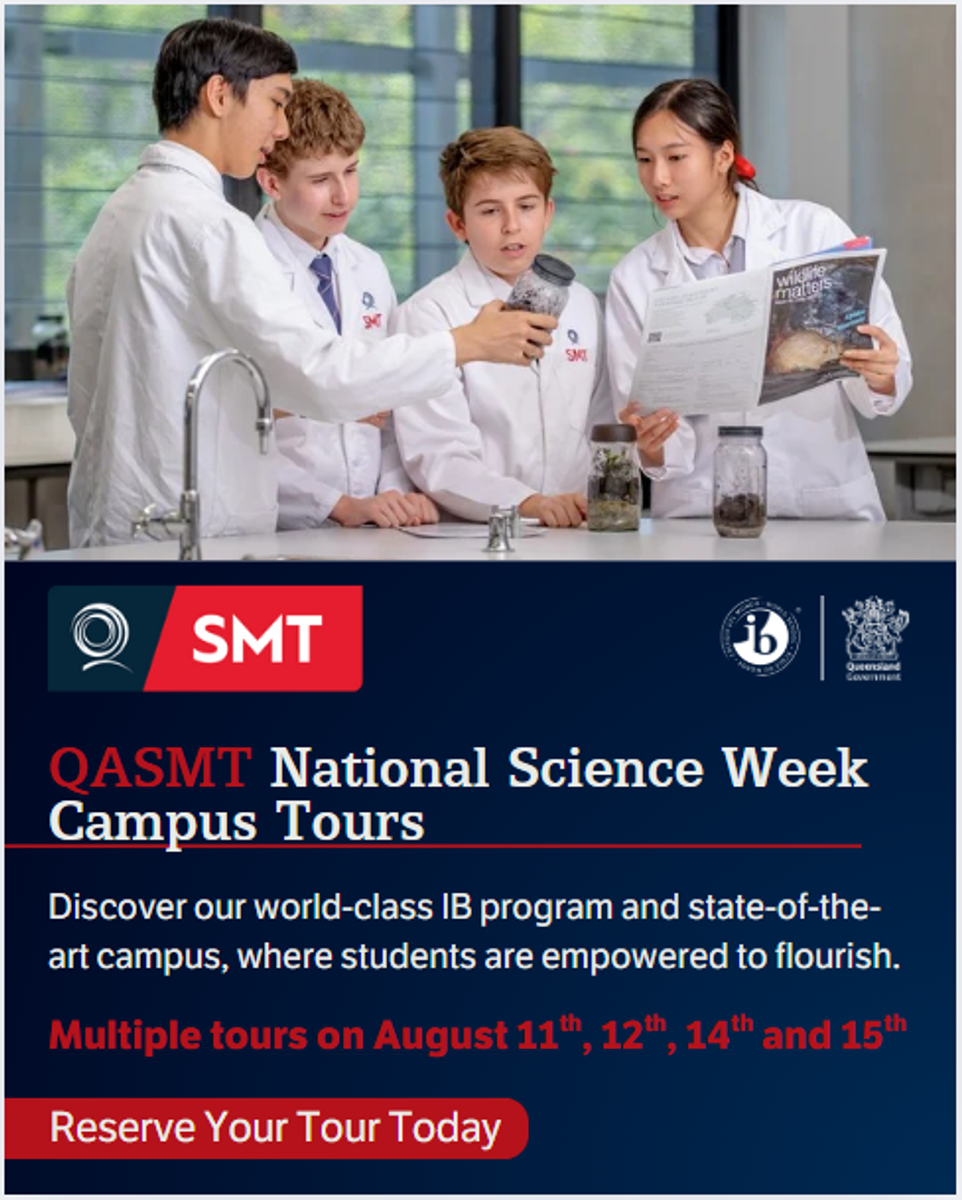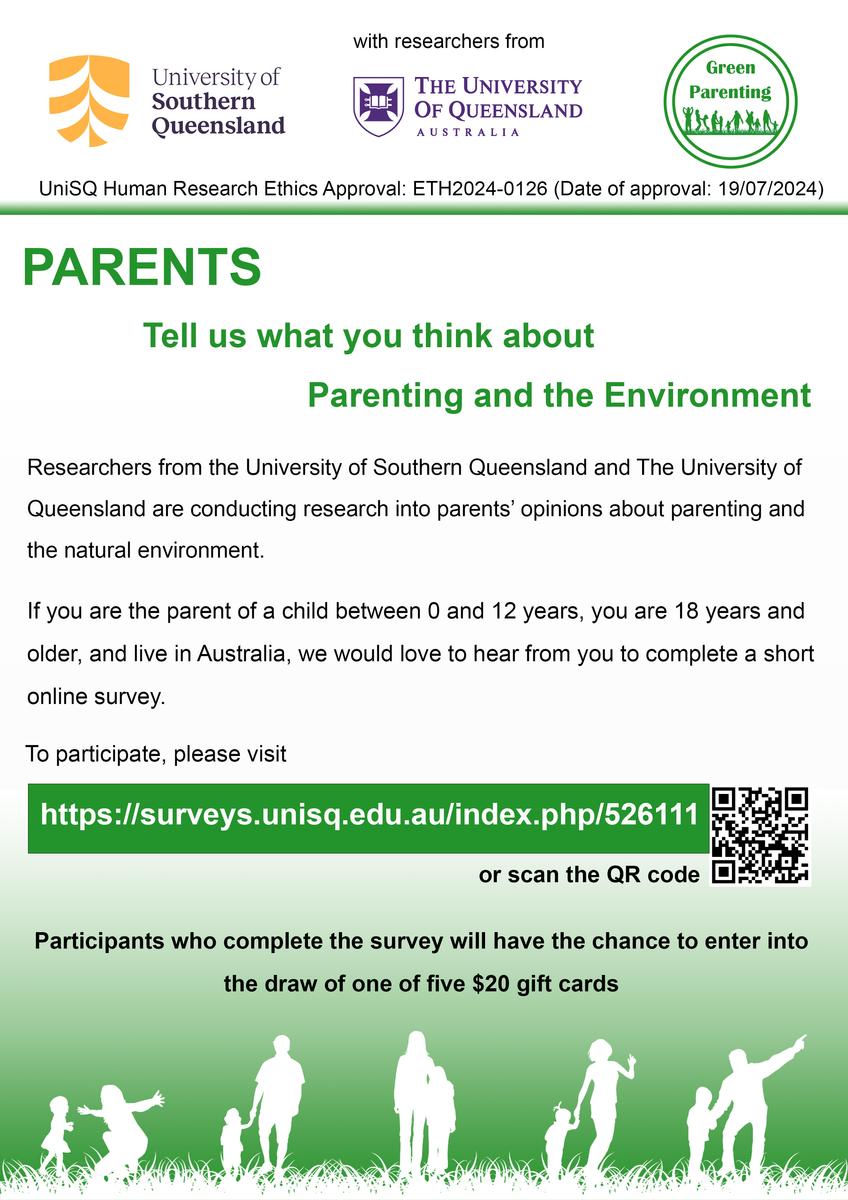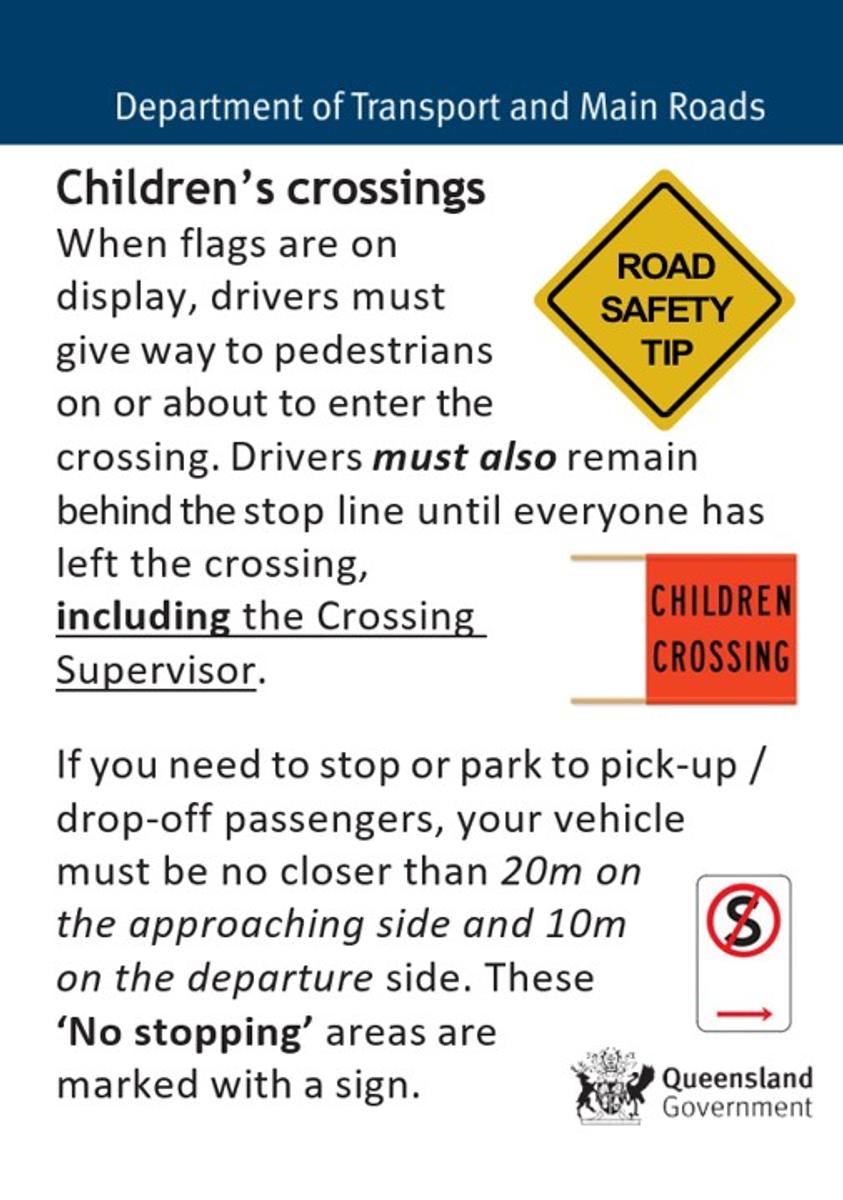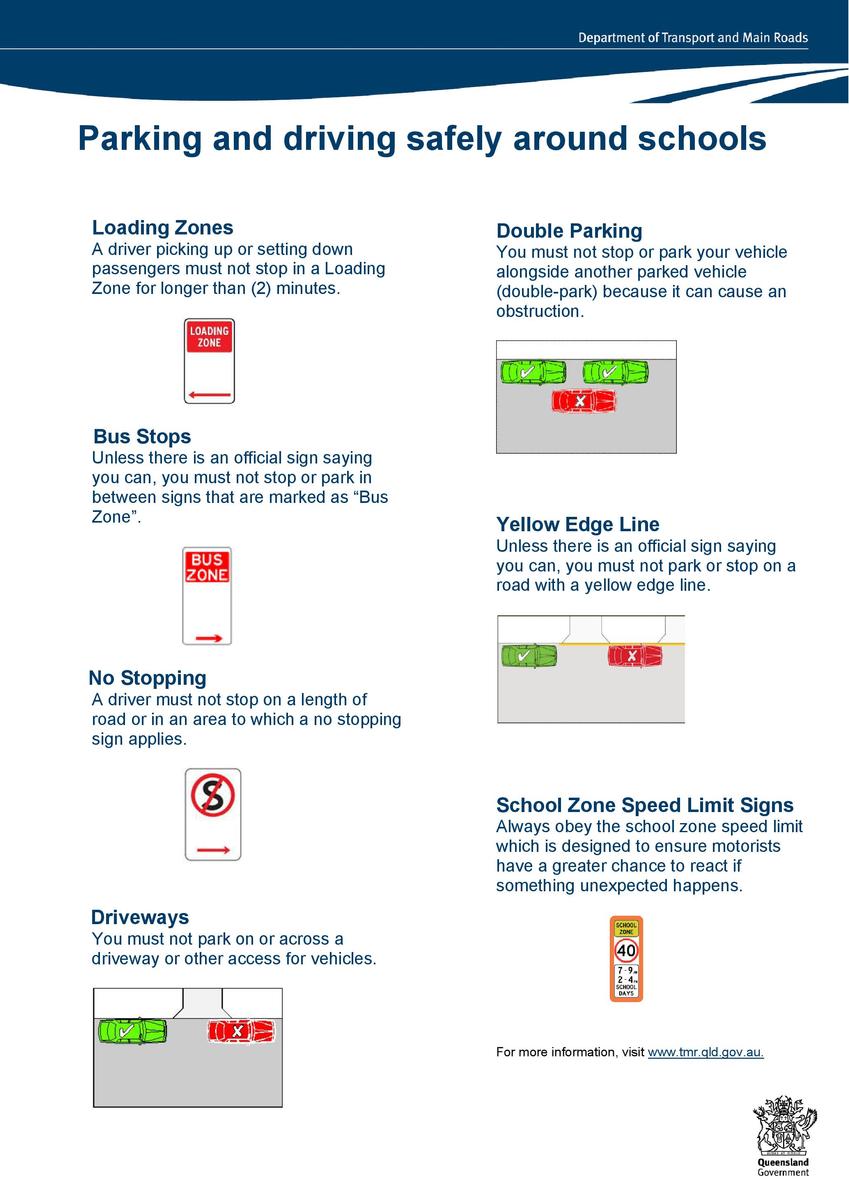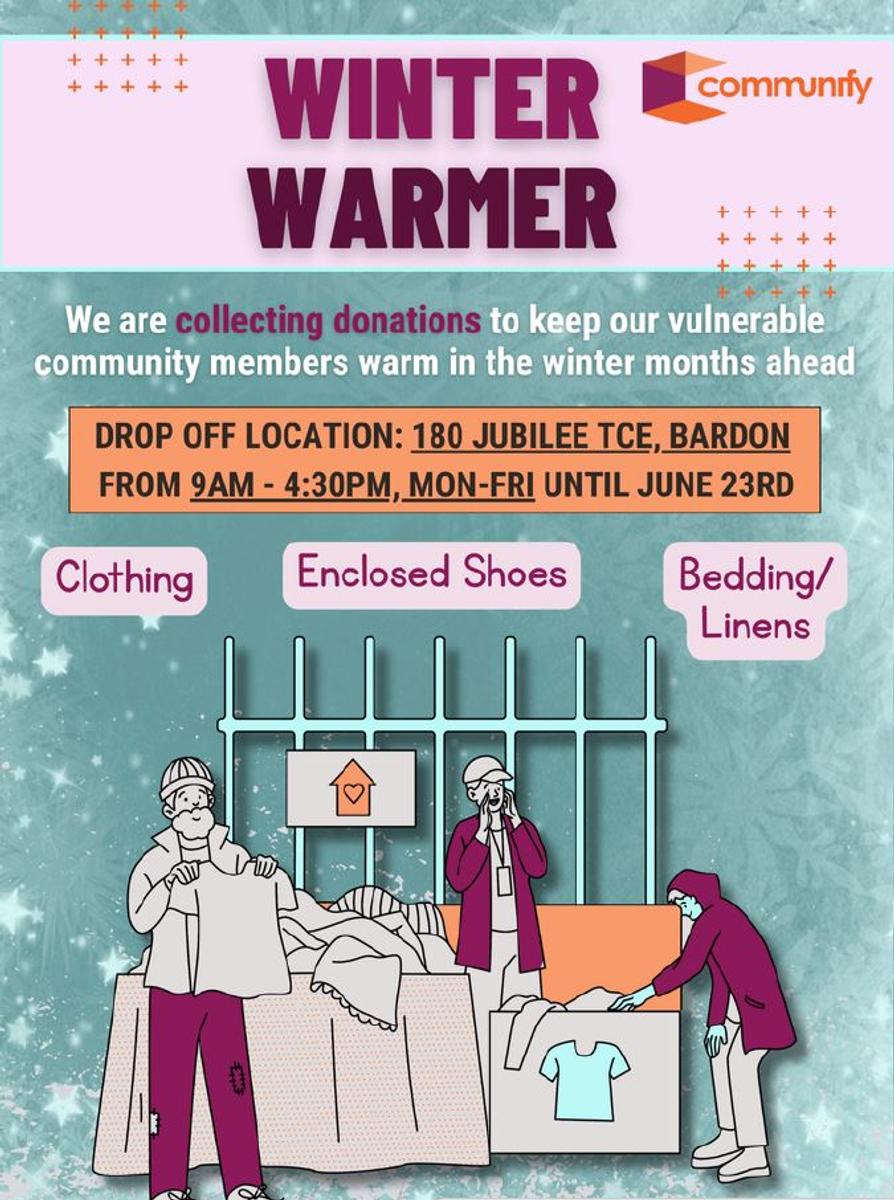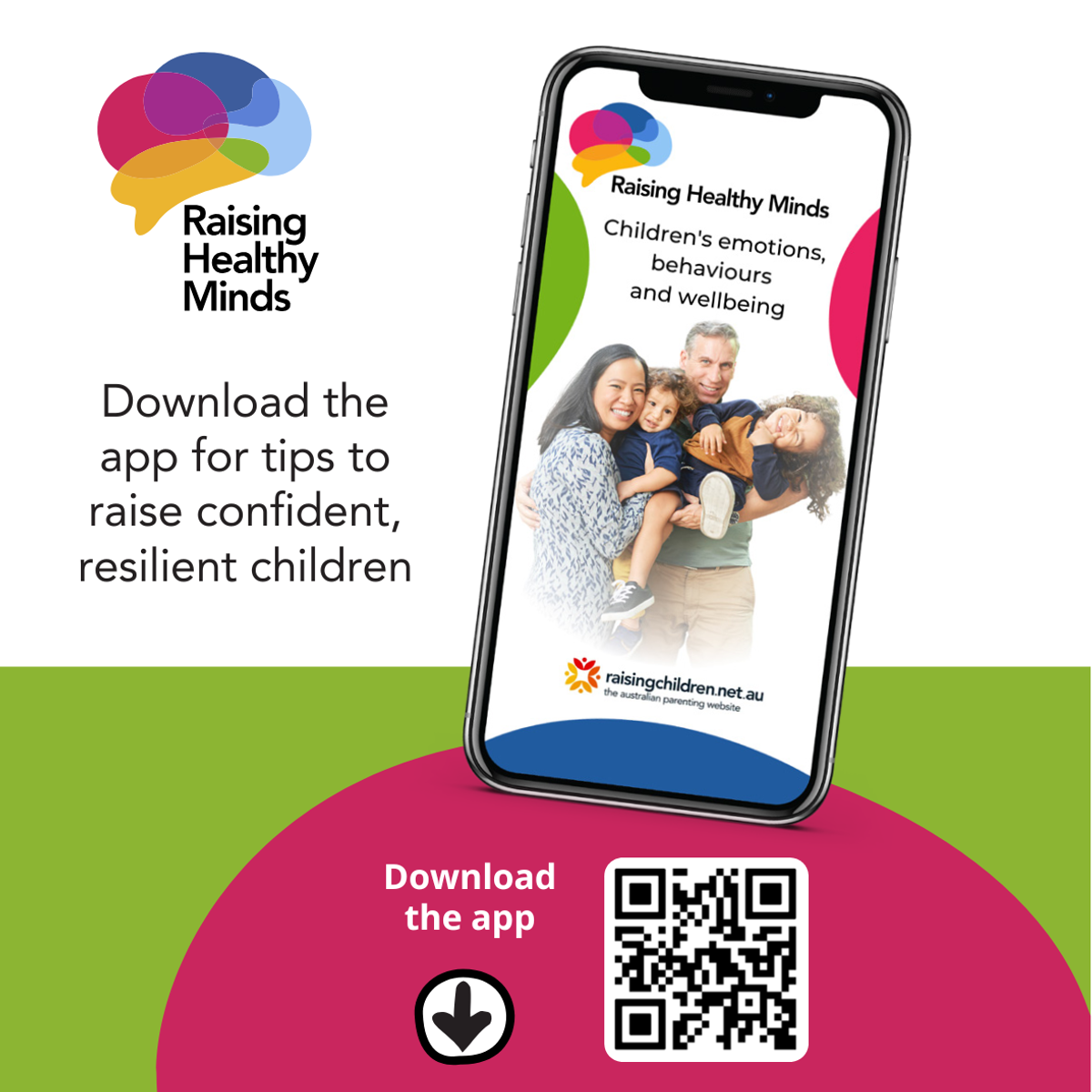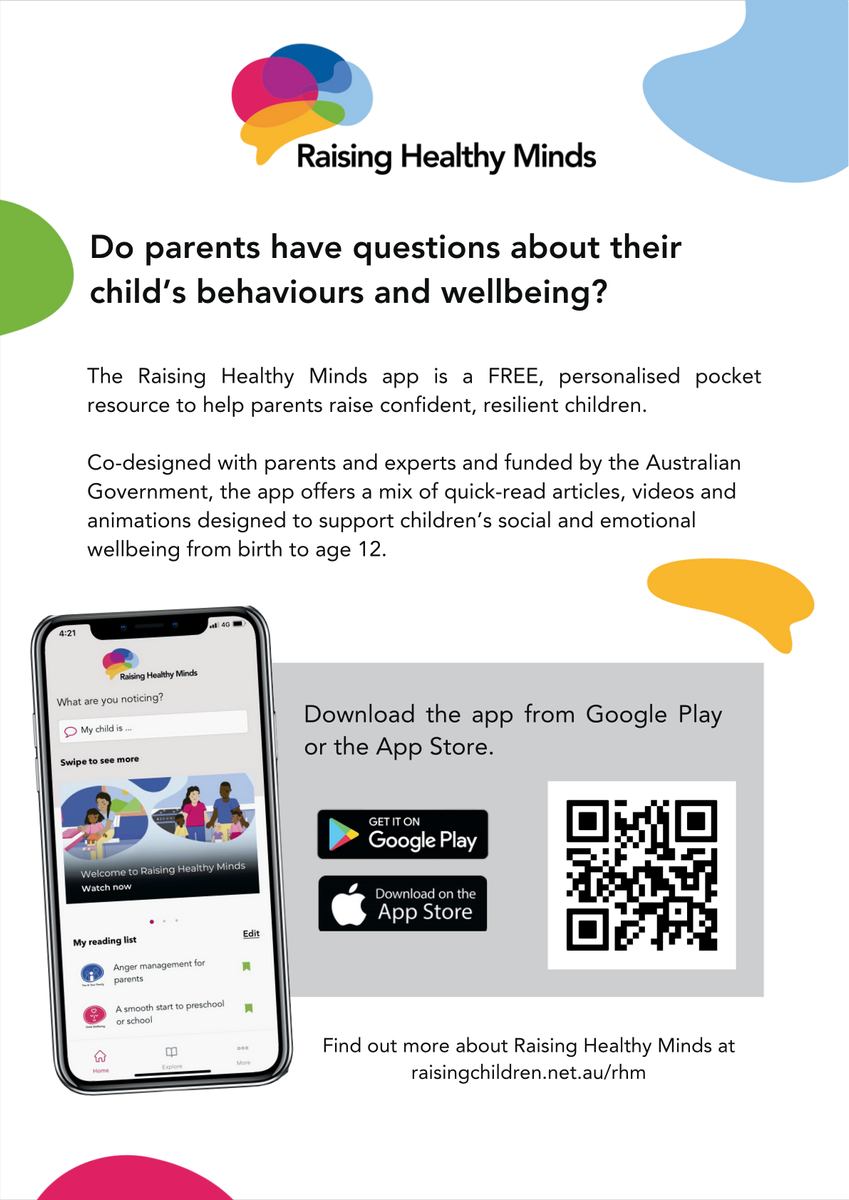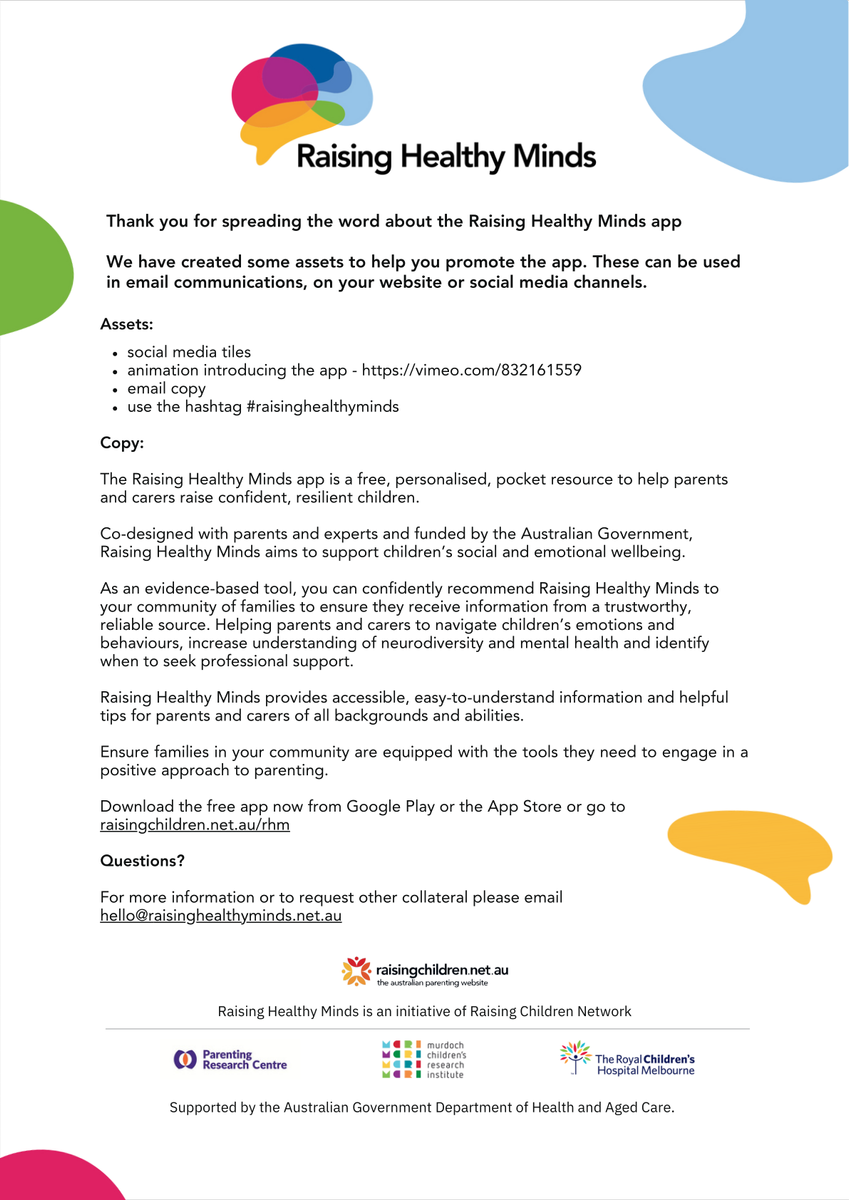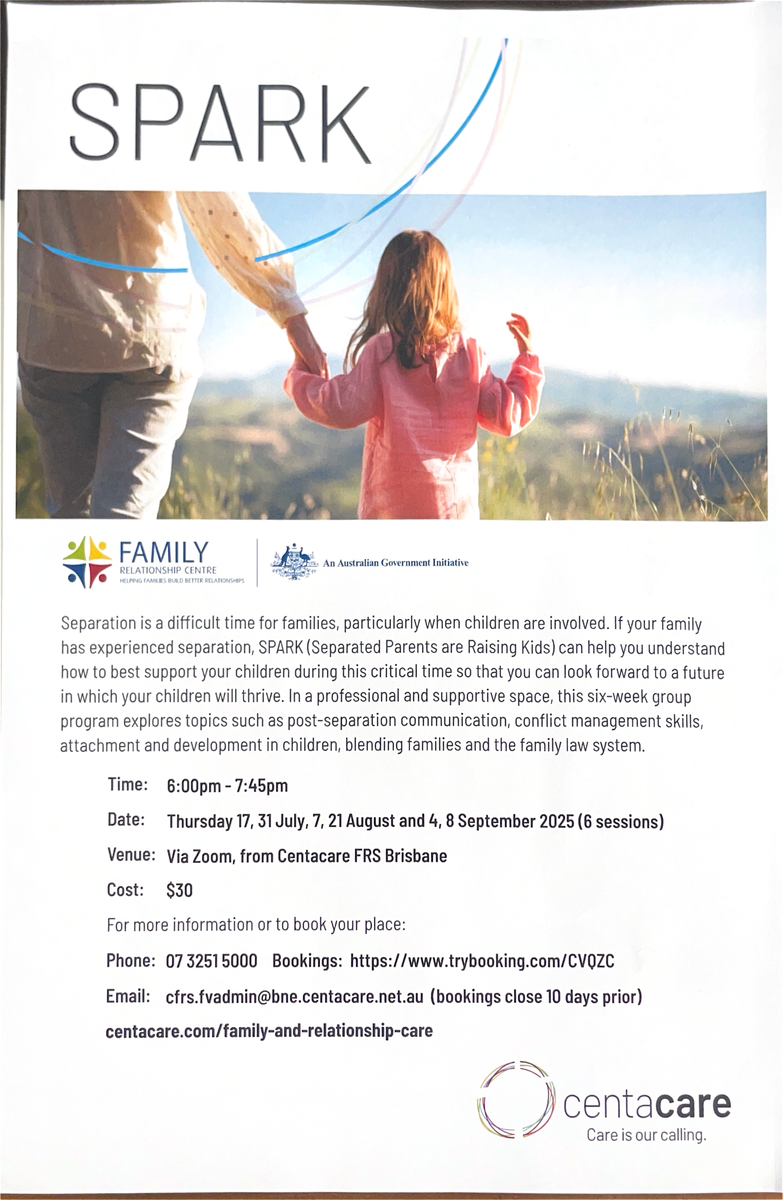Community News
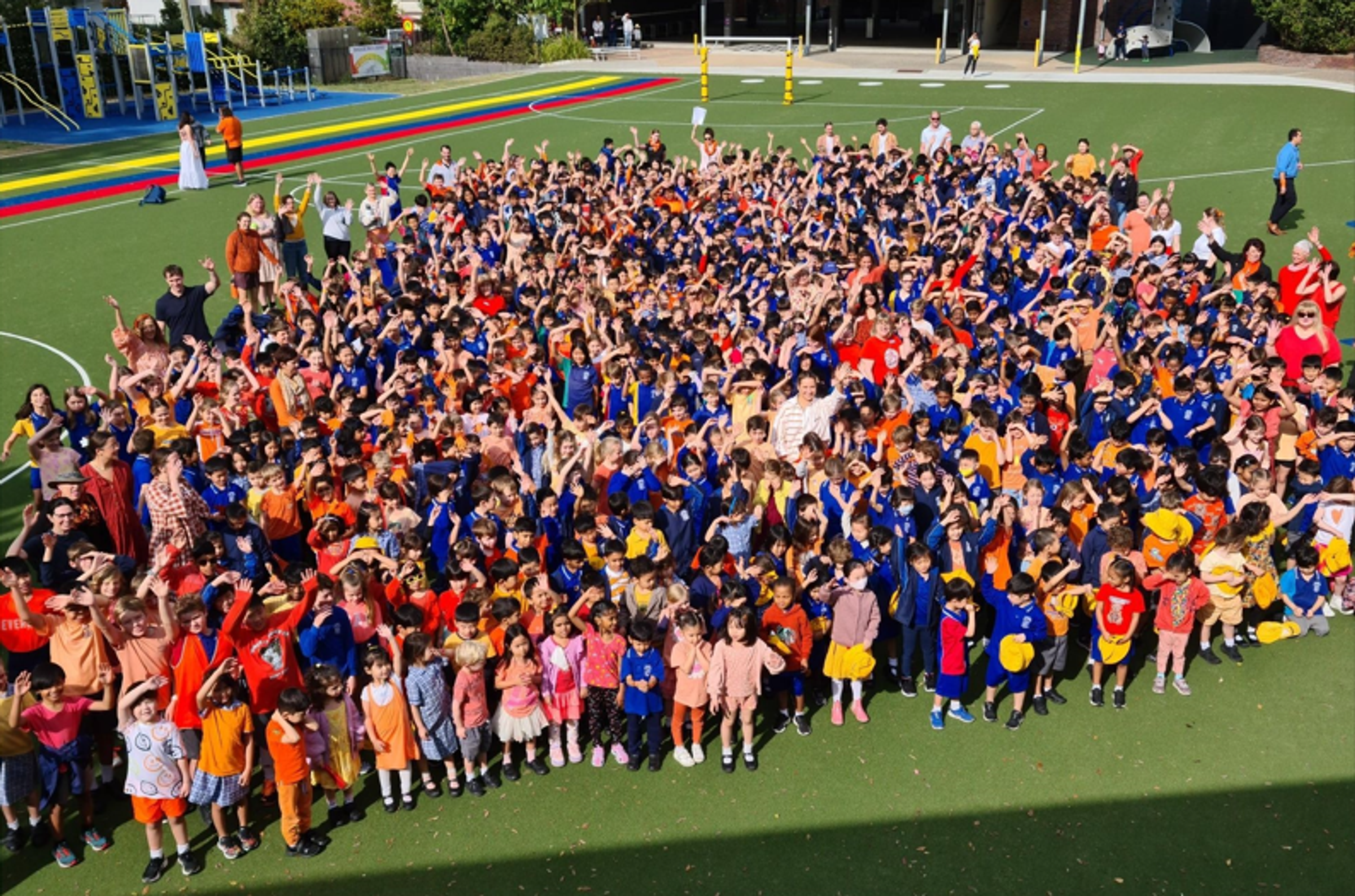
Wonderstruck Festival - GOMA
Step into a world of imagination at the Wonderstruck Festival – a free, joy-filled celebration for kids, teens and families!
Embrace the magic of play, curiosity, wonder and creativity for all ages with immersive art, hands-on workshops, pop-up talks, vibrant storytelling and music performances. Find out more.
Event Details
Date: 10.00am – 5.00pm, Saturday 28 & Sunday 29 JUNE 2025
Location: Gallery of Modern Art (GOMA)
The Cross River Rail Experience Centre buzzes with activity every school holidays.
The Christmas break is no exception, with a range of activities running on most days.
Some activities will require registrations, and some will be drop-in.
Activities on offer include art, puzzles and engineering challenges.
For more information, visit the Experience Centre’s events page.
Please note the Experience Centre will be closed from Friday 22 December, reopening on Tuesday 2 January.
QASMT National Science Week Campus Tours
Join us during National Science Week for a guided tour of the Queensland Academy for Science Mathematics and Technology (QASMT), a proud IB World School nurturing highly capable learners from Year 7 to Year 12.
📅 Tour Dates: August 11th, 12th, 14th & 15th, 2025
These tours provide a valuable opportunity for families to explore our innovative learning spaces, gain insight into the International Baccalaureate curriculum, and see how students at QASMT are supported to flourish both academically and personally.
🔗 Bookings are essential. Reserve your place via: https://www.trybooking.com/DCNET
Are You A Parent of a Child Between 0 to 12 Years Old?
Researchers from the University of Southern Queensland and The University of Queensland, are conducting research into parents’ opinions about parenting and the natural environment.
If you are a parent (18+ years) of a child aged 0 to 12 years and live in Australia, we would love to hear your views. You will need to complete a short online survey. To find out more or to participate, please visit:
This research has been approved by the UniSQ Human Research Ethics Committee (ETH2024-0126).
School Zone Safety
Dear Parents and Caregivers,
Brisbane City Council is writing to inform you that Ironside State School is confirmed to be included in the Brisbane City Council (Council) Safer Schools Program for Term 2, 2025. This program aims to promote safe parking practices and ensure compliance with local traffic regulations around schools.
Child safety is paramount, and illegal parking within school zones remains a significant concern for parents, residents, and schools. Limited parking spaces around peak drop-off and pick-up times often leads to competitive and potentially dangerous parking behaviours.
While we understand the challenges parents face in navigating school zone drop-off and pick-up, it is crucial to prioritise safety. Over the coming term, Council officers will be conducting regular patrols around your school to monitor parking compliance. Our enforcement approach will use a combination of foot patrols and our highly visible Community Safety and Regulation vehicles that can identify alleged offences using Automatic Number Plate Recognition and GPS software. Compliance action will be taken on any observed breaches.
School zone signs are displayed as you approach the school and shows both the speed limit and the times you need to reduce your speed around the school. Children's crossing are identified by children crossing flags, which are displayed near crossings before and after school hours.
When the crossing is supervised, you as a motorist must:
- wait until allpedestrians, bicycle or personal mobility device riders have crossed the road and the crossing supervisor has returned to the footpath
- abide by the direction given by the School Crossing Supervisor.
If the crossing is unsupervised, you as a motorist must:
- give way to pedestrians, bicycle or personal mobility device riders on or entering a children’s, pedestrian or marked foot crossings
- give way to pedestrians, bicycle or personal mobility device riders on or entering a road you’re turning into
- give way to pedestrians, bicycle or personal mobility device riders on a slip lane
- give way to pedestrians in a share zone
- travel at a speed allowing you to stop safely at a crossing if needed
As a driver, it's important to make sure you give way to all pedestrians, bicycle or personal mobility device riders such as skateboards, e-scooters. You must also give way to pedestrians using a motorised mobility device such as a motorised wheelchair or a mobility scooter.
Some of our most vulnerable road users are children getting to and from school, so it’s important to slow down and abide by the crossing rules, as it won’t make much difference to the trip time, but it could very well save lives.
Visit the Street Smarts website to find more information about what to do at pedestrian and children crossings.
______________________________________________________________________________
2025 National Consistent Collection of Data (NCCD)
On 1st August 2025, all schools in Australia must provide data to the Australian Government about students who receive ongoing adjustments in the school setting based on a broad definition of a disability. The NCCD enables schools and governments to understand the needs of students with disabilities and how they can be best supported at school. This process allows the government to distribute funding to identified students with additional access and learning needs.
The NCCD uses the definition of disability in the Disability Discrimination Act 1992.
The NCCD is a collection that counts!
The school team identifies the level of adjustment for individual students so that students with disabilities can access and participate in the educational setting on the same basis as their peers.
Student information provided to the Australian Government, Department of Education and Training for the NCCD does not explicitly identify individual students. For example, student names or student identifiers are not provided.
How does the NCCD assist schools?
- Reviewing learning and support systems: The NCCD allows schools to better understand the functional needs of their students with disability. It captures the work of schools in providing personalised learning and support for students with disability who require adjustments due to the functional impact of their disability.
- Providing greater understanding: The NCCD helps schools better understand their students with disabilities and identify areas of need for both students and staff.
- Developing professional judgement: The professional learning available to support the NCCD process helps build the professional judgement of school teams who are required to provide educational adjustments for students with disability without relying on a medical or clinical diagnosis alone.
- Recognising support and adjustments provided: The NCCD helps to formally and consistently recognise the support and adjustments provided to students with disabilities as defined in the DDA.
Please see https://www.nccd.edu.au for detailed information.
Please contact your child’s school team (Class Teacher, Student Support Coordinator or Deputy Principal) if you have further questions

